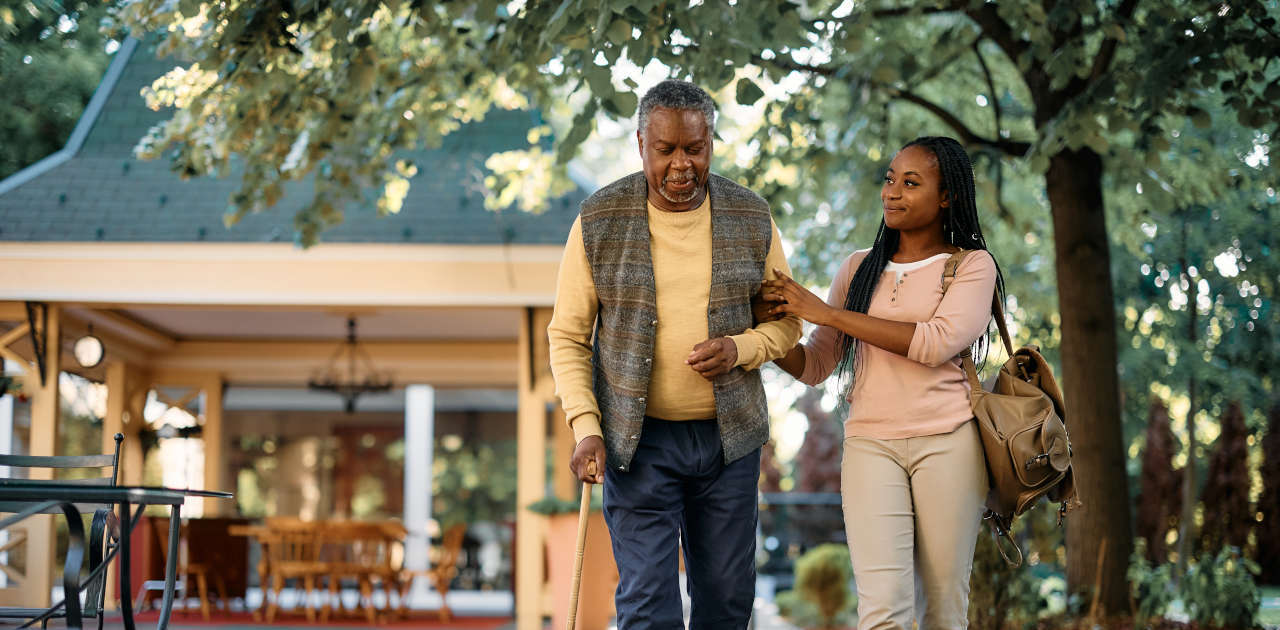In 2020 nearly 17% of adult Americans were caring for an aging adult over the age of 50. As our parents grow older, their physical and cognitive functions may start to decline. This may lead to them needing attention and extra support with day-to-day tasks.
Get Your Pills Pre-sorted and Delivered at No Extra Cost
Spending time with our aging parents may bring back childhood memories of when we depended on them for everything. Now it’s our turn to offer the love, compassion, and support they need.
Caring for an aging parent can sometimes feel overwhelming for an adult, especially when trying to balance personal and professional responsibilities. In this article, we will discuss some practical tips to maximize our companionship with our parents and minimize the stress of caregiving responsibilities.
Tips for Caring for an Aging Parent
Here are some practical tips that can help when caring for an aging parent:
1. Assess the Needs of Aging Parents
Open communication with our aging parents can help us assess their needs, preferences, and concerns. Take some time to observe their daily routine and think about how they could be helped and what type of help they might be willing to accept. For example:
- Can they efficiently perform daily household tasks such as grocery shopping or preparing meals?
- Can they still drive or use transportation to reach necessary locations?
- Can they do personal care activities such as bathe or dress themselves on their own?
- Can they manage their medications, finances, doctor’s visits, or legal matters?
Being aware of our parents’ needs and what support they may need is the first step in planning for caregiving.
2. Learn About Your Parents’ Health Conditions
Heart disease, diabetes, dementia, and arthritis are some of the common health issues in older people that may trigger a need for support. It can be very helpful to accompany a parent during their healthcare provider visits, with their permission, to learn about their current conditions and ask for information on how one can provide effective caregiving. For instance, it may be useful to keep track of their medication supply, daily dosage intake, and follow-up appointments.
Preparing short reminder notes for key events or frequent activities can also be useful, especially if a parent has recently been diagnosed with dementia. All older adults can benefit from being actively engaged in leisure and recreational activities like chess to maintain or potentially improve and restore their cognitive function.
3. Ensure a Safe Environment at Home
Most parents want to have a safe and enjoyable life at home as they age. One thing to consider when caring for aging parents is home safety. Home modifications may be needed to reduce the risk of falls and injury, which can be common in older people.
One out of every four older adults (over 65 years old) falls each year. Over 90% of hip fractures are caused by falls, which can result in severe injuries or hospitalization. Possible modifications could include:
- Installing handrails in bathrooms or staircases
- Attaching non-slip mats in the bathroom and on the stairs
- Keeping spaces clutter-free and well-lit
- Improving lighting in dimly lit areas and adding nightlights
- Requesting a physical therapy evaluation to assess whether a cane or other similar device would be helpful
Medbox: Never Sort Medications Again
4. Support Healthy Nutrition at Home
A healthy diet can improve our parents’ physical strength, immunity, and mental clarity. Keeping a food diary for a week or even a few days can help show what our parents are eating or drinking regularly. It may help identify opportunities for adding foods that are high in nutrients, such as fruits, vegetables, lean meats, and whole grains.
Older people often have a reduced appetite and sense of thirst with aging. It can sometimes help to provide food in smaller portions more frequently to fulfill their daily nutritional needs. Delivered meals or hiring a personal chef to make customized meals may also help, especially for persons with dietary restrictions or strong ethnic dietary preferences. Using pitchers of water or personal water bottles with a known volume can be helpful for tracking fluid intake and setting daily hydration goals.
5. Keep Aging Parents Physically Active and Engaged

Regular exercise can help keep our parents mobile and social when done in a group setting and is also very important in helping maintain independence and cognition. Physical activity is recommended for 30 minutes a day, 5 days a week and can be done in segments as short as 10 minutes at a time.
Accessible activities can include encouraging aging parents to go for a neighborhood walk in a park if in a safe area. Low-impact exercises such as light stretching, yoga, and lifting weights such as soup cans are also relatively easy to start at home. These physical activities can help them regain a sense of independence and improve their mental, emotional, and social well-being.
6. Connect Aging Parents With Their Friends or Relatives
Loneliness and social isolation can negatively impact our parents’ mental health and increase the risk of depression. To help address these feelings, encourage them to engage in enjoyable activities with friends and family or in social settings such as senior centers. Activities can include things like chess, board games, or card games. These games not only provide social interaction but also support cognitive health.
When able, spending time regularly with our parents helps us both stay connected and aware of each other’s status. Having dinner, taking a walk, playing a game, or watching a favorite show are great ways to keep our relationships going.
7. Last But Not the Least, Take Care of Ourselves
When caring for an aging parent, we need to remember to care for ourselves as well. Caregiving can be a challenging task, and it’s important to renew our own wellsprings of energy by taking time to relax or engage in favorite activities. Burnout is common among caregivers when they try to do everything by themselves without asking for any help. When it is possible to share the responsibilities with others or when services can be affordably hired, it can help both us and our parents. Seeking help can ensure that our parents receive the best care possible for as long as possible.
Helpful information about many related topics and services can be found at the Eldercare Locator and the National Institute on Aging.
Your Prescriptions Sorted and Delivered
References:
- Services for older adults living at home (2023). National Institute on Aging. https://www.nia.nih.gov/health/caregiving/services-older-adults-living-home
- Roberts, H. L., Bollens‐Lund, E., Ornstein, K. A., & Kelley, A. S. (2023). Caring for aging parents in the last years of life. Journal of the American Geriatrics Society, 71(9), 2871–2877. https://doi.org/10.1111/jgs.18415
- Schulz, R., Beach, S. R., Czaja, S. J., Martire, L. M., & Monin, J. K. (2020). Family caregiving for older adults. Annual Review of Psychology, 71(1), 635–659. https://doi.org/10.1146/annurev-psych-010419-050754
- Yeung, S. S. Y., Kwan, M., & Woo, J. (2021). Healthy diet for healthy aging. Nutrients, 13(12), 4310. https://doi.org/10.3390/nu13124310
- Does an older adult in your life need help? (2023, October 12). National Institute on Aging. https://www.nia.nih.gov/health/caregiving/does-older-adult-your-life-need-help
- Getting started with Caregiving. (2023, October 12). National Institute on Aging. https://www.nia.nih.gov/health/caregiving/getting-started-caregiving
- Charenkova, J. (2023). “Parenting my parents”: Perspectives of adult children on assuming and remaining in the caregiver’s role. Frontiers in Public Health, 11. https://doi.org/10.3389/fpubh.2023.1059006
- Langhammer, B., Bergland, A., & Rydwik, E. (2018). The Importance of Physical Activity Exercise among Older People. BioMed Research International, 2018, 1–3. https://doi.org/10.1155/2018/7856823
- Czaja, S. J., Moxley, J. H., & Rogers, W. A. (2021). Social Support, Isolation, Loneliness, and Health Among Older Adults in the PRISM Randomized Controlled Trial. Frontiers in Psychology, 12, 728658. https://doi.org/10.3389/fpsyg.2021.728658
- National Institute on Aging A-Z Health Topics. https://www.nia.nih.gov/health Accessed November 7, 2024.
- Eldercare Locator. https://eldercare.acl.gov/Public/Index.aspx Accessed November 7, 2024.


